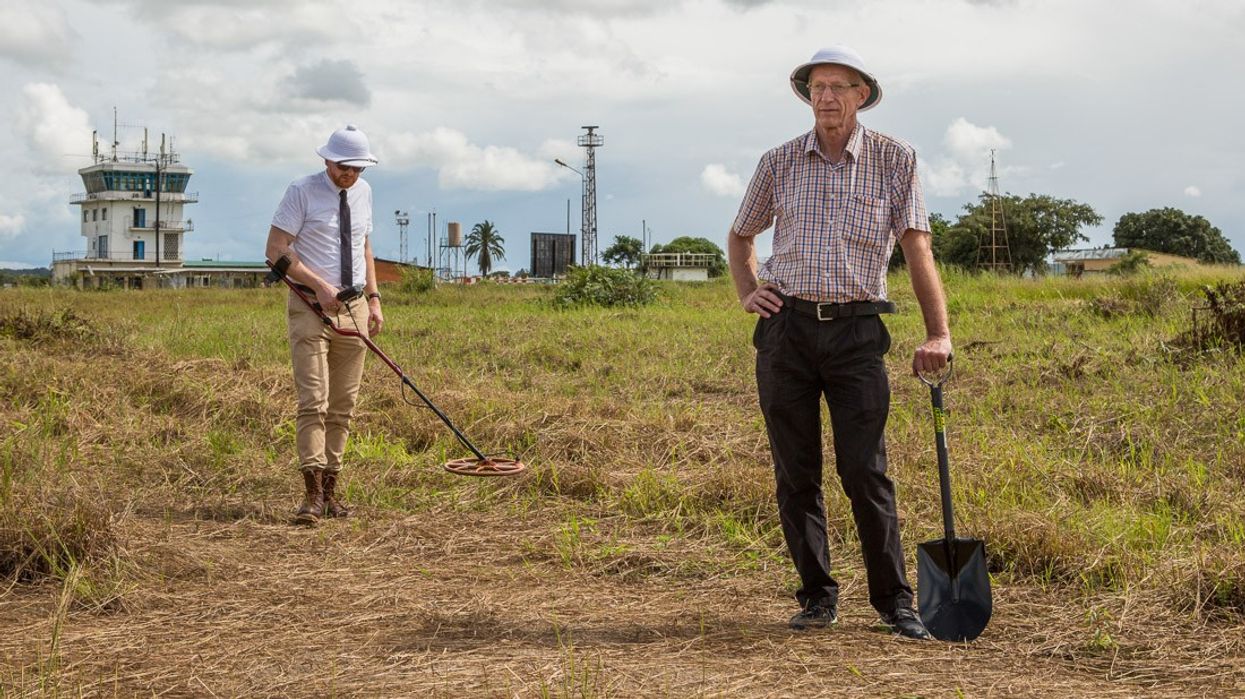Boundary-Pushing Filmmakers at Sundance Champion Non-Film Related Ways to Make a Living
If you’re making films in unconventional ways, it can be hard to get money and make money on them. Keeping your day job is a way of protecting your creative vision.

Four provocative filmmakers and artists, Rick Alverson, Mads Brügger, Penny Lane, and Asad J. Malik sat down on the Sundance 2019 Power of Story: Pushing Boundaries Panel to talk about how they push boundaries and why. For all of them, it seemed a tedious and difficult process to raise money for their films as well as count on making money back on them. One interesting point the panelists pointed out — many of them have other ways of making ends meet, and that is something they purposefully maintain so they can continue to maintain the provocative and boundary-pushing nature of their filmmaking ethos.
Watch the recording of the livestream for yourself and check out some of our favorite takeaways below.
Making conventional films creates a problematic world
Rick Alverson is a narrative filmmaker known for his firm departure from the three-act structure who is at the fest with his knew film The Mountain. From Aversion:
“The only reason i keep returning to movies is there seems to be a corner of counter weight i can provide, and unpopulated portion of the room i can work in. My film here is an Anti-Utopian film.
Cinematic experiences in consumer narrative are aspirational. They leave us validated, like a hall of mirrors, anesthetized. They do everything we want them to do, and we walk away unchanged. Cinema is on our terms…When we then go to the world and look for everything on our terms, the world, dreams, cinema riffs off of it and that develops something really problematic, including bigotry."
There’s no reason that the filmmaker has to be hidden
Mads Brügger is a non-fiction filmmaker whose film Cold Case Hammarskjöld is at Sundance this year. From Brügger:
“First, I like the honesty of showing yourself as the storyteller instead of hiding yourself behind the camera. Second of all, there is a performance side to me. I like taking part of it. I started doing that early on. I wrote a feature story where i infiltrated a clown convention. i went undercover as a clown. i thought it was funny. But it evolved into something extreme…I soon found myself at the gates of an institution, finding out that we would be clowning inside the Psychiatric ward. I was about to pretend to be a clown for crazy people...that was problematic!
It never gets easier to make raise money, so protect your ability to fail by keeping your day job
Penny Lane is a non-fiction filmmaker whose film Hail Satan? is playing in U.S. Documentary Competition at the festival. From Lane:
“It’s hard. it would be so easy to do this if I was doing the same thing over and over again, which most of my peers are doing. But that seems boring…I had this misconception when i was young that if i made enough critically and financially successful films, the next pitch meeting, I’d get a blank check. But I have to start from scratch every single time.
I’m a tenured professor, so I don’t need my movies to be successful. It was never the case my mortgage payment depended on me making successful films. I would do a lot to protect that feeling that i can fail and be ok.”
For more, see our ongoing list of coverage of the 2019 Sundance Film Festival.
No Film School's podcast and editorial coverage of the 2019 Sundance Film Festival is sponsored by Blackmagic Design.
Featured header image is a still from 'Cold Case Hammarskjöld' directed by Mads Brügger and is an official selection of the World Cinema Documentary Competition of the 2019 Sundance Film Festival.














